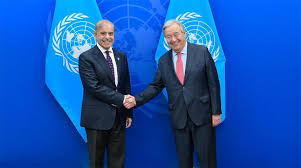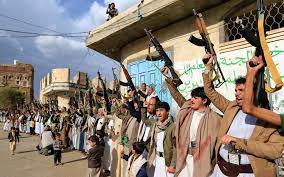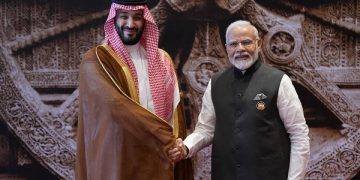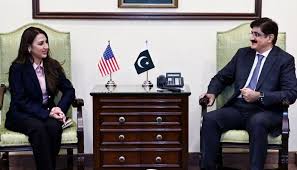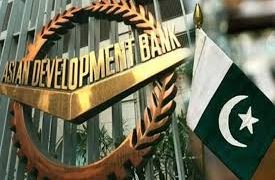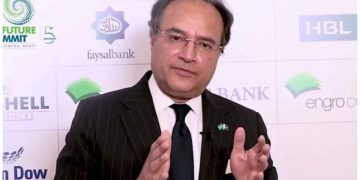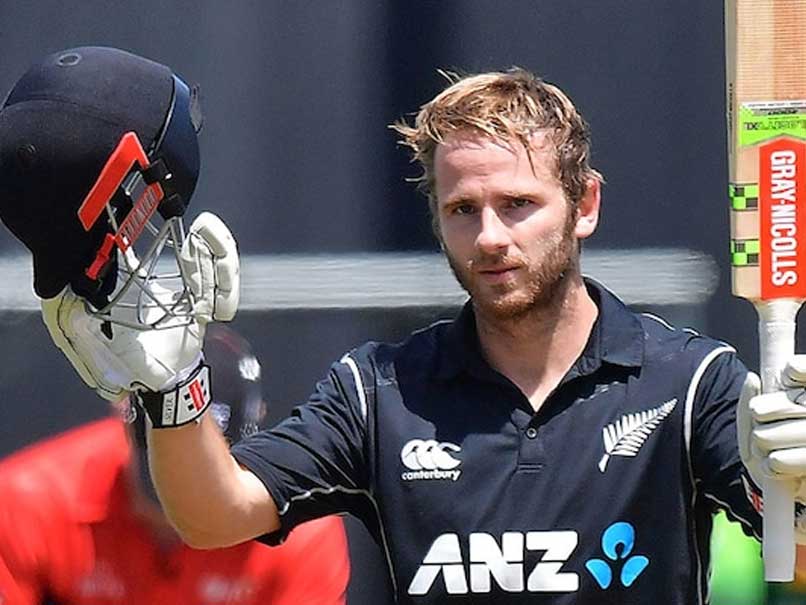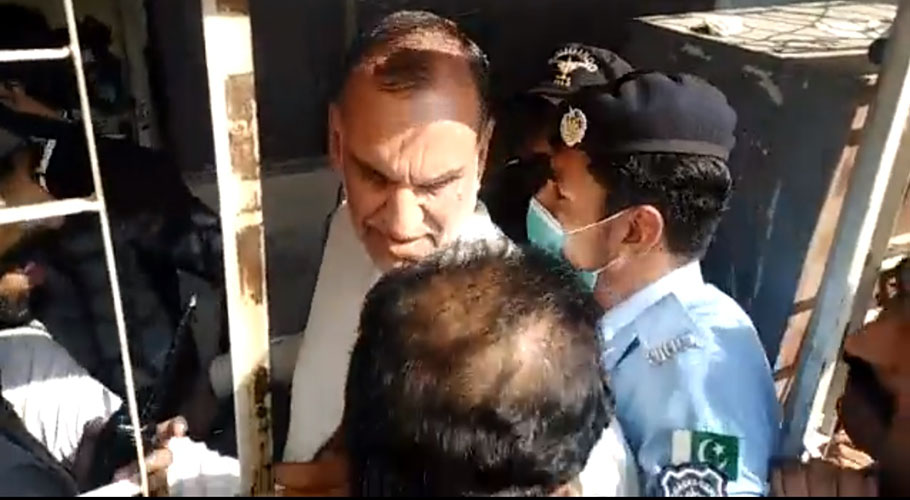Pakistan’s Consumer Price Index (CPI) based inflation rate jumped to 31.4% year-on-year, rising from 27.4% in August, data from the Pakistan Bureau of Statistics (PBS) showed on Monday, amid skyrocketing energy costs.
Inflation rose for the first time in four months after the government raised fuel prices to meet the International Monetary Fund’s (IMF) conditions for an ongoing $3 billion bailout programme.
The country is embarking on a tricky path to economic recovery under a caretaker government after a $3 billion loan programme approved by the IMF in July averted a sovereign debt default, but with conditions that complicated efforts to rein in inflation.
On a month-on-month basis, inflation climbed 2% for September, compared to an increase of 1.7% in August.
Inflation during the first quarter of the current fiscal year averaged 29%.
Quarterly average inflation for 1QFY24 hit 29.04% compared to 25.11% in 1QFY23.
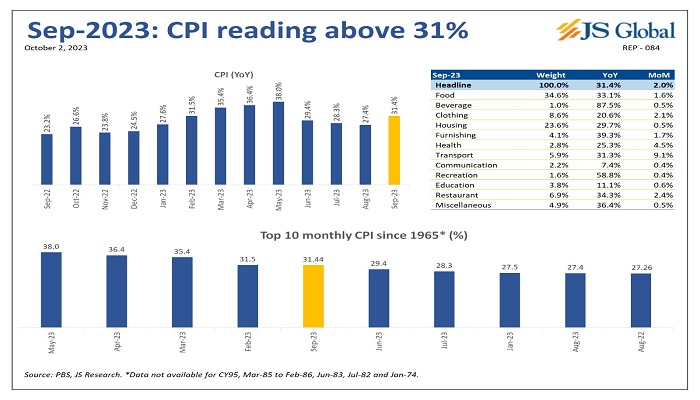
According to PBS, the CPI inflation in Urban increased to 29.7% on a year-on-year basis in September 2023 as compared to an increase of 25.0% in the previous month and 21.2% in September 2022.
On a month-on-month basis, it increased to 1.7% in September 2023 as compared to an increase of 1.6% in the previous month and a decrease of 2.1% in September 2022.
CPI inflation in rural increased to 33.9% on a year-on-year basis in September 2023 compared to an increase of 30.9% in the previous month and 26.1% in September 2022.
On a month-on-month basis, it increased to 2.5% in September 2023 as compared to an increase of 1.9% in the previous month and an increase of 0.2% in September 2022.
According to a report by Topline Securities, this is in line with market expectations.
JS Global, in a report, said a lower base set in Sep-2022 might bring a blip in the September 2023 CPI reading, projected at 30.6%.
The brokerage house noted that a one-time power tariff adjustment of -65% month-on-month (MoM) in September 2022 led to a 115 basis point (bp) MoM dip in Sep-2022 CPI, declining the base for this month.
Meanwhile, brokerage house Arif Habib Limited (AHL), in its report expected inflation reading to be 31.1%.
“Looking forward, the primary factors posing risks to overall inflation include the potential for sustained pressure on both food and energy prices, alongside an imminent adjustment in gas tariffs,” said AHL.
On Friday, the Ministry of Finance said in its monthly report that it anticipated inflation remaining high in the coming month, hovering around 29-31% due to an upward adjustment in energy tariffs and a major increase in fuel prices.
The report added that inflation was, however, expected to ease, especially from the second half of the current fiscal year that starts on Jan. 1.
On Saturday Pakistan cut petrol and diesel prices from a record high, after two consecutive hikes. The finance ministry cited international prices of petroleum products and the improvement in the exchange rate, following the clampdown on unregulated FX trade.
Inflation has been elevated, hovering in double digits, since November 2021. The South Asian country targeted inflation at 21% for the current fiscal year, but it averaged 29% during the first quarter.


